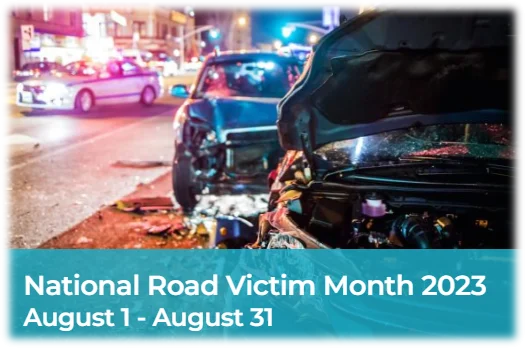Great Britain observes the month of August as National Road Victim Month, focusing not only on remembering people who have been killed or injured on public roads, but also using it to “raise awareness to make our roads safer.” Our law firm – Stritmatter Kessler Koehler Moore – has been out front on road safety for nearly 50 years (Breivo v. City of Aberdeen, 15 Wn. App. 520 (1974)), and we share this August focus with our friends across the Atlantic.
Unlike a number of states. Washington’s law has explicitly stated – for the past 128 years – that our governmental entities have a duty to provide reasonably safe roads for the traveling public. This law has been strengthened even further in recent years by decisions of the Washington Supreme Court.
An example is Owen v. Burlington Northern & Santa Fe Railroad Company, 153 Wn. 2d. 780 (2005), in which our Supreme Court declared that once a roadway is shown to have been unsafe and to have contributed to a crash, the burden shifts to the municipality to show the action that it took to correct the hazardous condition. (In most cases, they had taken no action at all.)
This duty to keep our roads in a reasonably safe condition extends to:
- Marking crosswalks where pedestrians need them (and now includes installing pedestrian-activated flashing beacons at crossing areas where warranted)
- Installing traffic signals at intersections with a significant collision history
- Eliminating dangerous curves and/or using adequate guardrails and warning signs
- Providing left-turn channelization at intersections with a history of left-turning crashes
- Installing median barrier along highways to prevent cross-over head-on collisions


- Keeping the areas next to the highway (“clear zones”) free of hazardous conditions, such as poles, trees, boulders, open culverts, and sharp slope embankments
- Using guardrails to prevent collisions with overpass pillars

- Eliminating sight-obstructing vegetation at intersection approaches so that drivers can see each other in time to stop and avoid a collision

- Addressing slippery roads
- Maintaining roadways to prevent pavement edge drop-offs
- Closing unsafe intersections
- Providing warning signs where a potentially hazardous condition can’t be repaired or eliminated
…and all of these duties extend to all modes of transportation – from trucks to buses to cars to motorcycles to bicycles and, of course, to pedestrians. They extend beyond streets to bridge and sidewalks. And they are to be obeyed by municipalities 24/7/365.
Because the people of the State of Washington waived sovereign immunity, the State and its cities and counties are liable for their negligence, the same as you and me.
The wages of highway design negligence have been millions of deaths and paralyzed drivers and passengers – and all have involved suffering that could have been avoided by municipalities’ compliance with the law requiring that they pay attention to our roads – designing, maintaining and repairing them – to keep them in a reasonably safe condition.
To the families of road victims – let’s adopt the British call to “raise awareness to make our roads safer”.
STRITMATTER LAWYERS ARE EXPERTS IN DANGEROUS ROAD CASES
Our attorneys employ top engineering, safety, and human factors experts in the field when handling dangerous road cases. To find out if you have a valid claim against a governmental entity for injury caused by a dangerous road, schedule your free consultation.

